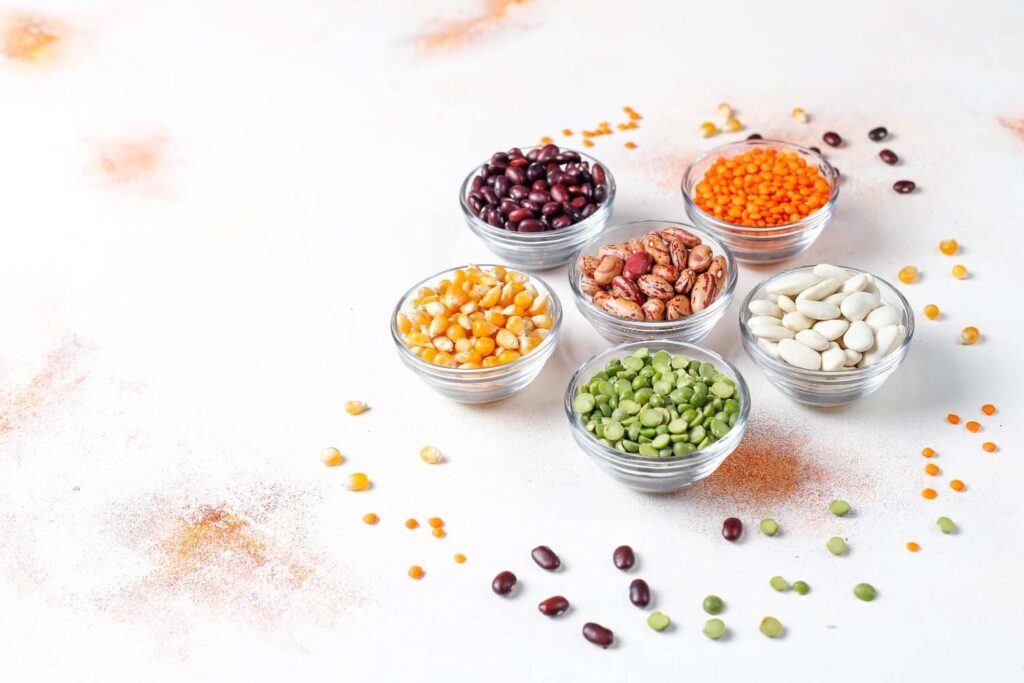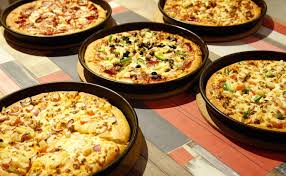Beans, also known as Dal in India, have been a staple food in households for centuries. Rich in protein, fiber, and essential nutrients, they form the backbone of many traditional Indian dishes. From lentil soups to curries, beans (dal) not only enhance the taste but also provide immense health benefits.
What Are Beans (Dal)?
Beans (Dal) are edible seeds from the legume family, known for being rich in plant-based protein, iron, and fiber. They come in various types and colors, each offering unique nutrients and flavors. In Indian culture, beans and lentils are used daily in meals such as dal fry, khichdi, sambhar, or salads.
Beans are considered one of the most sustainable sources of protein, making them an excellent choice for vegetarians and vegans. Companies like Beans Company in India are helping make this nutritious option more accessible, promoting sustainable eating habits across the country.
Types of Beans (Dal) Commonly Found in India
India is home to a wide variety of beans and pulses. Let’s look at some of the most popular types of beans (dal) and what makes them unique:
1. Moong Dal (Green Gram)
Moong dal is light, easy to digest, and full of vitamin C, iron, and potassium. It is often used in soups, khichdi, and sprouted salads.
Health Benefits: Helps in weight management, improves digestion, and keeps cholesterol under control.
2. Masoor Dal (Red Lentils)
Masoor dal is known for its quick cooking and rich taste. It’s packed with protein, fiber, and antioxidants, making it a healthy option for everyday meals.
Health Benefits: Boosts immunity, supports heart health, and helps maintain glowing skin.
3. Urad Dal (Black Gram)
Urad dal is famous for dishes like dal makhani and dosa batter. It’s an excellent source of iron, folic acid, calcium, and potassium.
Health Benefits: Strengthens bones, improves digestion, and supports nervous system health.
4. Toor Dal (Pigeon Pea)
One of the most widely used dals in Indian homes, toor dal is loaded with protein, carbohydrates, and B-complex vitamins.
Health Benefits: Promotes heart health, aids digestion, and provides steady energy.
5. Chana Dal (Bengal Gram)
Chana dal has a slightly nutty flavor and is packed with iron, zinc, and protein.
Health Benefits: Regulates blood sugar levels, enhances muscle strength, and aids in weight control.
6. Rajma (Kidney Beans)
Rajma is a favorite in North India. These kidney-shaped beans are rich in protein, magnesium, and fiber.
Health Benefits: Boosts energy, helps maintain blood pressure, and supports heart function.
7. Black Beans
Known for their earthy flavor, black beans are a staple in many global cuisines. They are rich in antioxidants, folate, and iron.
Health Benefits: Helps improve digestion, reduces inflammation, and promotes brain health.
8. Soybeans
Soybeans are the richest plant-based source of protein and contain all nine essential amino acids.
Health Benefits: Supports muscle growth, reduces cholesterol, and helps maintain hormonal balance.
Nutritional Value of Beans (Dal)
Beans (Dal) are a powerhouse of essential nutrients that make them one of the healthiest food options available. Here’s an overview of their nutritional composition per 100 grams (varies by type):
| Nutrient | Average Value |
| Protein | 22–26 g |
| Fiber | 10–15 g |
| Carbohydrates | 55–60 g |
| Fat | 1–2 g |
| Iron | 3–5 mg |
| Calcium | 50–80 mg |
| Potassium | 800–1200 mg |
These nutrients make beans an important part of a balanced diet, helping to improve overall health and wellness.
Also Read Best Cashew Brands in India
Amazing Health Benefits of Beans (Dal)
1. High in Protein
Beans are an excellent plant-based protein source, ideal for vegetarians and vegans. Regular consumption supports muscle growth, tissue repair, and overall strength.
2. Supports Heart Health
Beans help in reducing bad cholesterol (LDL) and maintaining good cholesterol (HDL) levels, which improves heart function and reduces the risk of cardiovascular diseases.
3. Aids Digestion
The fiber content in beans promotes smooth digestion and prevents constipation. It also nourishes healthy gut bacteria, improving metabolism.
4. Helps in Weight Management
Beans are low in fat and high in protein and fiber, keeping you fuller for longer. This naturally helps in reducing unnecessary snacking and aids in weight loss.
5. Controls Blood Sugar Levels
The complex carbohydrates and fiber in beans slow down sugar absorption, maintaining stable blood sugar levels — especially beneficial for people with diabetes.
6. Boosts Energy Levels
Beans are a great source of iron, which plays a crucial role in transporting oxygen in the body and maintaining energy throughout the day.
7. Improves Bone Health
Rich in calcium, magnesium, and phosphorus, beans help in strengthening bones and reducing the risk of osteoporosis.
8. Enhances Skin and Hair Health
The antioxidants and vitamins in beans help keep the skin glowing and hair strong by fighting free radicals and promoting cell regeneration.
Culinary Uses of Beans (Dal)
Beans (Dal) are versatile and used in various dishes across India and the world. Some popular preparations include:
- Dal Tadka or Dal Fry – a classic Indian dish cooked with spices and ghee.
- Rajma Chawal – kidney beans curry served with rice.
- Khichdi – a simple dish made with rice, moong dal, and mild spices.
- Sprouted Bean Salads – for a protein-rich snack or meal.
- Soups and Stews – for a hearty and nutritious meal.
Beans are also used in processed foods, protein powders, and health supplements, making them an important agricultural product worldwide.
India’s Role as a Global Beans (Dal) Hub
India is one of the largest producers and exporters of beans and pulses globally. The agricultural landscape here supports the cultivation of a wide range of pulses suitable for domestic consumption and export.
Many leading Beans Companies in India focus on sustainable farming practices and high-quality processing methods to meet global standards. These companies ensure that every batch of beans is cleaned, graded, and packed under strict hygiene conditions.
One such trusted name in the industry is Valency Agro, known for its commitment to quality sourcing and supply of premium beans. Their focus on sustainable farming and transparent operations helps in delivering nutritious beans to both domestic and international markets.
Role of Beans Suppliers in India
The presence of a reliable Beans Supplier in India ensures that both retail and wholesale markets receive a steady supply of high-quality beans. These suppliers connect farmers with industries, ensuring a fair trade ecosystem.
Suppliers handle crucial processes such as:
- Quality inspection
- Sorting and grading
- Packaging and logistics
- Export compliance
By maintaining the integrity and nutritional value of the beans, suppliers play a significant role in meeting growing market demand.
How to Choose the Right Beans (Dal)
When purchasing beans, here are a few tips to ensure you’re getting the best quality:
- Check for Freshness: Always buy beans that are free from moisture and insects.
- Inspect Color and Shape: Beans should have a uniform size and color.
- Buy from Trusted Sources: Choose a reputable Beans Company in India or a known Beans Supplier in India to ensure quality and safety.
- Proper Storage: Keep beans in airtight containers away from humidity to maintain freshness.
Environmental Benefits of Growing Beans (Dal)
Beans are not only good for human health but also for the planet. They are known for their ability to fix nitrogen in the soil, improving soil fertility naturally. This reduces the need for synthetic fertilizers, making them an eco-friendly crop choice.
Additionally, beans require less water compared to other crops like rice or wheat, contributing to sustainable agriculture practices that benefit both farmers and the environment.
Conclusion
Beans (Dal) are truly nature’s gift — packed with nutrients, easy to cook, and beneficial for health. From boosting protein intake to improving heart health, beans play an essential role in a balanced diet.
So, whether you’re a health enthusiast, a vegetarian, or someone who loves traditional Indian food, adding Beans (Dal) to your daily diet can be one of the best choices for your overall well-being.



Pingback: Why Sesame Seeds Are a Superfood You Should Add to Your Diet